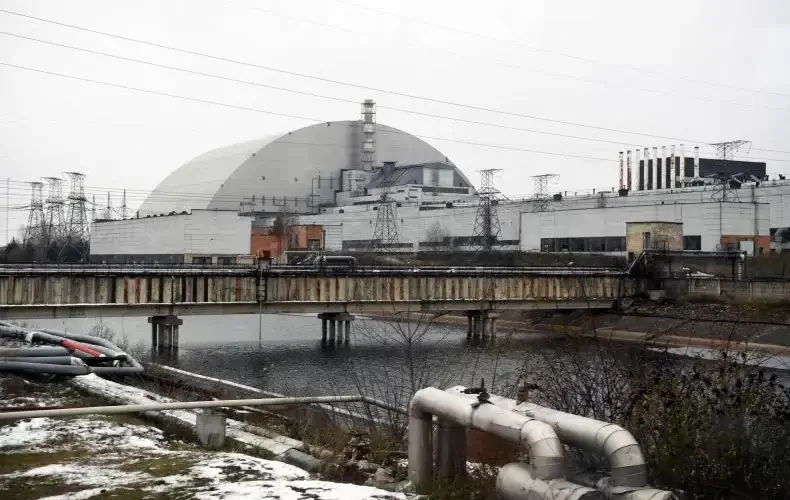Russian troops digging trenches around Chernobyl have been hospitalized following their work next to the site of the world's worst nuclear disaster, a Ukrainian official said.
Yaroslav Yemelianenko, a council member of the State Agency of Ukraine for Exclusion Zone Management, posted on Facebook that Russian "terrorists" had been digging in the Red Forest—named after the color of trees contaminated by the disaster of April 26, 1986, and which lies within the exclusion zone.
While nuclear experts on Twitter have been disputing whether troops could have suffered "acute radiation syndrome" from digging in the soil, as some outlets reported, the claim highlights the concern over nuclear power plants being caught up in the war in Ukraine.
Newsweek has contacted the International Atomic Energy Agency (IAEA), Yemelianenko and the Russian defense ministry for comment.
Yemelianenko said Russian troops were taken to the Republican Scientific and Practical Center for Radiation Medicine and Human Ecology in Gomel, Belarus.
"If you have minimal intelligence in command or soldiers, these consequences could have been avoided," he wrote, according to a translation next to an image of a vehicle apparently with troops, adding: "Russian soldiers are brought to this center on a regular basis."
Although Yemelianenko didn't say it in his post, Ukrainian and Western reports are suggesting that the soldiers are suffering from "acute radiation syndrome."
Environmental data group Safecast said that based on its data, Russian forces may have been "reckless, and could get notable radiation exposure in the Red Forest," but that there was "not enough for Acute Radiation Sickness."
Mark Nelson, founder of the Radiant Energy Fund, an adviser on nuclear energy, told Newsweek that 36 years of isotope decay meant that disturbing the soil might increase the radiation exposure of the occupying soldiers, but that "it is not plausible that it would lead to mass acute radiation sickness."
Russian forces took control of the Chernobyl facility on February 24, the first day of the invasion. Workers were on duty for more than 600 hours before being allowed a shift change. They are now understood to be back home.









